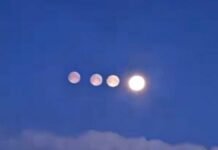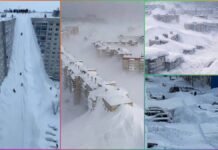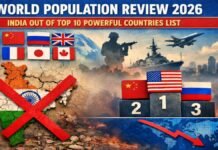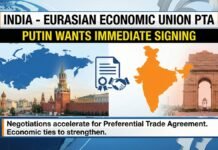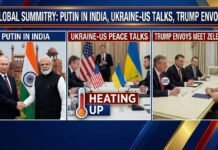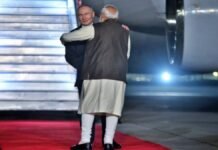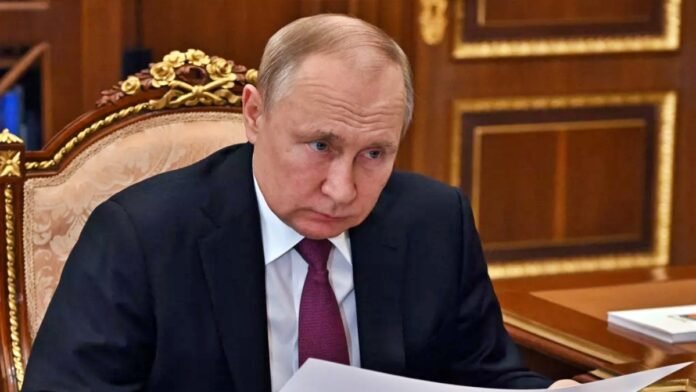
New Delhi: With the Russia-Ukraine war dragging into its third year, the involvement of Western nations, particularly the United States and Britain, has intensified, potentially reshaping the conflict’s trajectory. Ukraine, now armed with advanced long-range missiles from its Western allies, has been granted the freedom to strike deep into Russian territory. As Ukraine pushes its offensive, Russian President Vladimir Putin has responded with escalating rhetoric, convening an urgent high-level meeting on Wednesday. Putin warned that continued airstrikes inside Russia could provoke a nuclear response, marking a dangerous new phase in the war.
Western Support Fuels Ukraine’s Offensive Capabilities
In recent weeks, Ukraine’s military capacity has surged, thanks to a fresh wave of sophisticated weaponry from the US and UK. Notably, Ukraine has been equipped with American and British cruise missiles capable of reaching Russian cities far from the front lines. British Prime Minister Keir Starmer and US President Joe Biden reportedly finalized an agreement to send additional arms during a recent meeting in the US. One of the key assets now in Ukraine’s arsenal is the British-made ‘Storm Shadow’ cruise missile, which London has openly allowed Ukraine to deploy inside Russia. This marks a significant shift in the war’s dynamics, enabling Kyiv to strike deeper into Russian territory than ever before.
These missile strikes have already begun to take a toll on Russian cities. The escalation has left Moscow increasingly vulnerable, with strategic locations and infrastructure targeted in a way not seen since the war began.
Putin’s Nuclear Threat: A Chilling Warning to the West
The Kremlin’s response to these developments has been swift and stern. According to Russian intelligence, the increasing Western support for Ukraine’s airstrikes has prompted a re-evaluation of Russia’s nuclear doctrine. During Wednesday’s emergency meeting, President Putin expressed profound concern over the US and UK’s involvement, signaling that Russia might consider more extreme measures if these attacks on Russian soil persist.
“If Western nations continue to enable Ukraine to bomb Russian cities, this is no longer a war between Russia and Ukraine, but a direct conflict with the West,” Putin reportedly told his advisors. His warning included the possibility of resorting to nuclear weapons, a line Russia had previously reserved only for nuclear attacks on its own territory.
Putin’s rhetoric suggests that the continued support of Western powers could risk pushing the conflict into uncharted—and catastrophic—territory. Moscow has made it clear that the ongoing bombardment could leave Russia no choice but to make a “decisive” move.
What Is Russia’s Nuclear Policy?
Under its current nuclear doctrine, Russia has committed to using nuclear weapons only in response to an attack involving weapons of mass destruction or in cases where the nation’s very existence is threatened. However, the doctrine could now be revised in light of the escalating situation, as suggested by recent Russian intelligence reports.
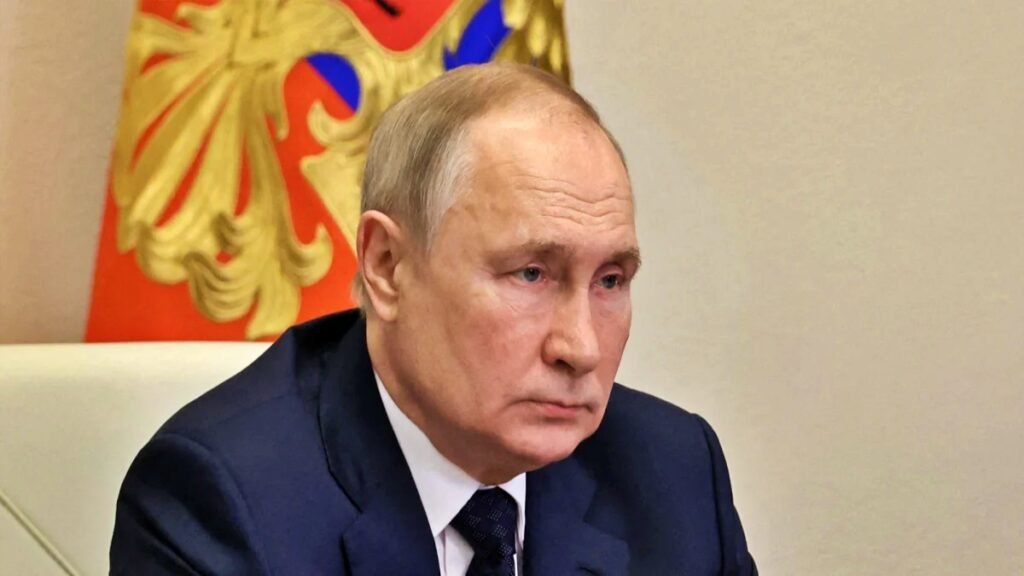
Russia’s stance on nuclear arms is also shaped by its participation in the US-Russia New START Treaty, a landmark arms control agreement that limits both nations’ deployed nuclear warheads and delivery systems. This treaty, signed in 2010 and effective from February 5, 2011, was meant to ensure mutual limits on nuclear capability, yet Putin’s latest comments suggest that the accord might be strained under current circumstances.
A Conflict of Global Stakes: India’s Role and Western Involvement
While global powers like India have called for peaceful resolutions to the Russia-Ukraine war, Western nations continue to provide arms and support to Ukraine. The result has been a dramatic shift in the balance of power on the battlefield, further intensifying the conflict and heightening global fears of nuclear escalation.
The West’s role in “provoking” Ukraine to take bolder actions against Russia has been criticized by Moscow. However, leaders in the US and UK argue that their support is necessary to help Ukraine defend its sovereignty and push back against Russian aggression. With both sides digging in and the stakes higher than ever, diplomatic efforts appear increasingly sidelined.
Putin’s Next Move: Will Russia Strike Back?
As the world watches nervously, Putin’s nuclear threat hangs over the conflict like a shadow, raising the stakes for both Russia and Ukraine and their Western backers. The next phase of the war may not just involve more missile strikes, but a potential shift toward a full-scale confrontation between Russia and NATO-backed Ukraine, with consequences that could ripple far beyond Eastern Europe.
The coming weeks will be crucial in determining whether this dangerous escalation leads to a diplomatic breakthrough or drags the world closer to a nuclear crisis.




































